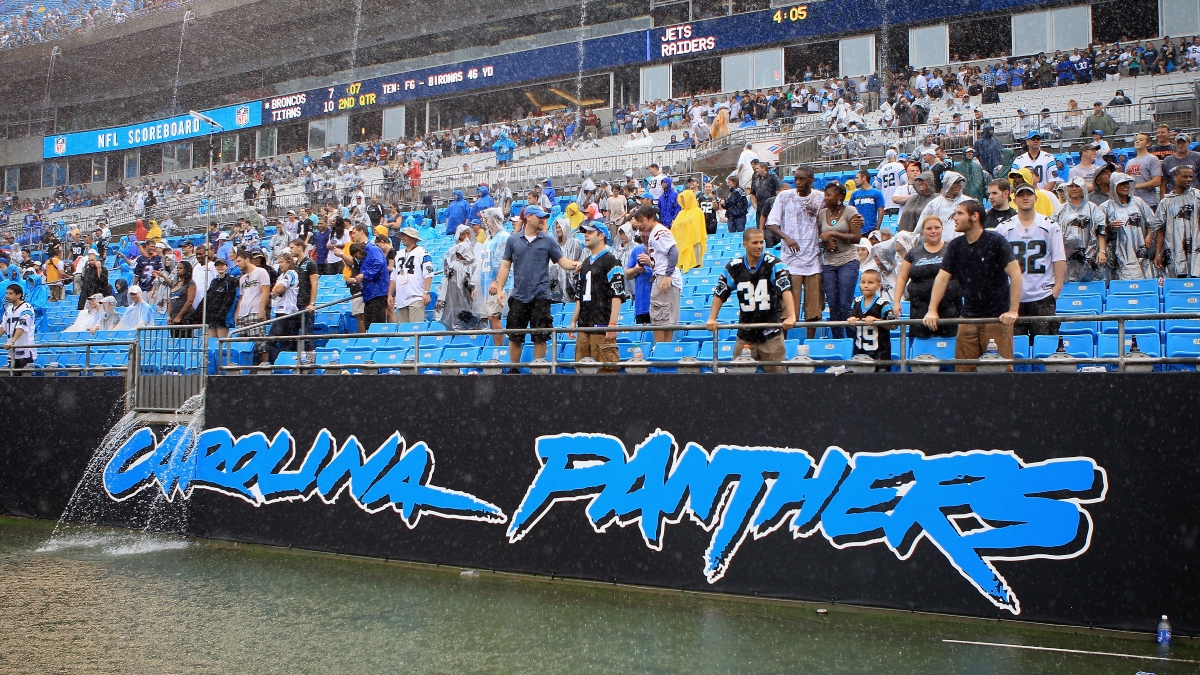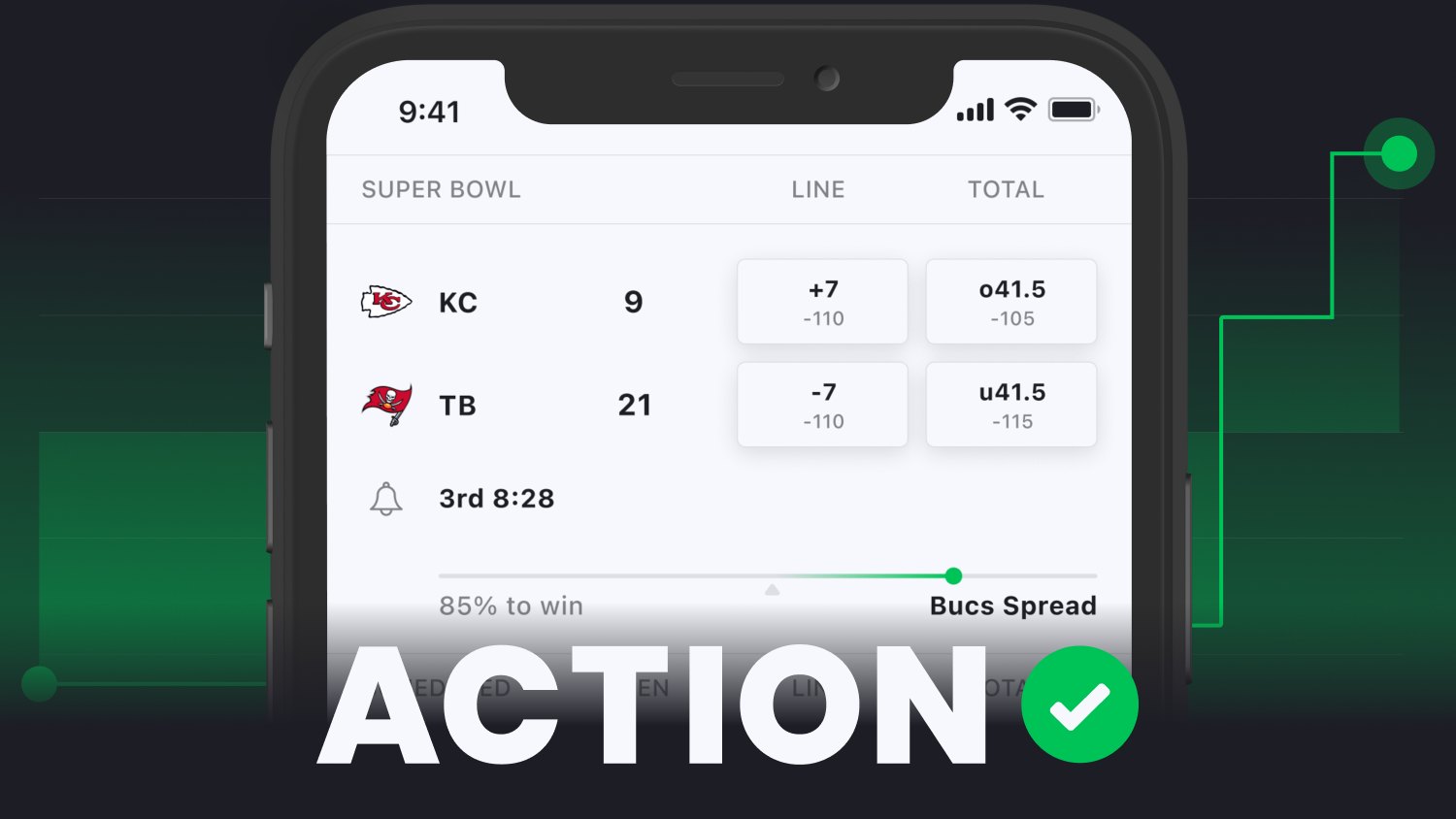North Carolina’s Online Sports Betting Hopes Go Up in Flames
Photo by Streeter Lecka/Getty Images. Pictured: Rain falls at Bank of America Stadium
After concocting a last-minute deal, hurrying bills through multiple committees and both the House and Senate passing online sports betting, North Carolina will continue to outlaw it.
Hope for online sports betting died Wednesday night when the House of Representatives voted 50-51 against a bill (S.B. 688) that would authorize up to 12 mobile wagering apps, effectively killing it with seven days left in the 2022 session.It was a complete nose-dive for this year’s push, which had gained steam in the past couple of weeks.
Moments before voting down S.B. 688 the House passed a near identical bill (S.B. 38) 51-50 that would legalize online sports betting, but at a higher tax rate.
While it’s scheduled for another vote Thursday, S.B. 38 was tied to the fate of S.B. 688, which passed the Senate last year before failing in the House Wednesday.
Rep. Jeffrey Elmore voted different ways on each bill.
The notion of expanding betting beyond casinos, where it’s currently confined to in the Tar Heel State, was met with a diverse array of criticism from lawmakers, who discussed addiction, corruption and constitutionality.
Last Minute Deal to Blame?
Why two bills, you ask?
You’re not alone. A lot of lawmakers asked that very question during Wednesday night’s debate.
Rep. Pricey Harrison called it the most confusing legislative process she’s been a part of in her 18 years in the statehouse. She led the charge against both bills.
S.B. 38 originally authorized small business owners to represent their firms in court, but on Tuesday it was gutted and replaced with language from S.B. 688 — except with a 14% tax rate instead of an 8% one. This allowed changes without having to restart the legislative journey.
That was expected to satisfy demands from Gov. Roy Cooper and key House lawmakers that the state would make more revenue off online sports betting, but that wasn’t enough to sway others.
“These bills are running in concurrence so that if one is passed the governor has the right to veto and consider both bills,” said Rep. Jason Saine, who carried both bills for the House. “We believe we have a construct that allows us to do what we want to do.”
Myriad of Concerns
The extra $25 to $50 million a year the state would make under online sports betting isn’t worth the cost of spreading addiction, Rep. Pat B. Hurley said.
That revenue amounts to less than .2% of this year’s budget, Harrison pointed out.
Rep. Wesley Harris pushed back on that, saying that without the bill the state would continue to lack the resources to help gambling addicts.
Under an amended version of S.B. 38 $2 million a year would go toward gambling addiction treatment and awareness.
Lawmakers also criticized the irregular process in which the bills progressed, but Harris pushed back on that as well.
“688 was passed last year and I don’t think there’s been a day that’s passed where the lobbyists haven’t come to our offices asking us what issues we have with this bill,” Harris said. “That’s what 38 is. It’s been an open dialogue.”
Another key reason proponents created the trailer bill: North Carolina's constitution prevents lawmakers from imposing an income tax higher than 7%. After concerns that the original bill could be struck down by a court, SB 38 sought to remedy that with alternate language, though some still had their doubts.
"I appreciate the argument being brought up, but at this point in time there’s no clear cut constitutional issue with this bill," said Rep. John Szoka. "We can argue back and forth about it, but like with every other bill, someone can bring it to court if they wish."
No College Betting
Perhaps the only thing more shocking than a lawmaker voting for and against essentially a word-for-word copy of the same bill was the overwhelming appetite lawmakers had to ban betting on college sports.
An amendment to ban online betting on all college sporting events passed 62-39. If both bills had passed North Carolina would've been a Governor's signature away from becoming the first state to institute a ban on college athletics.
Oregon is the exception, though its ban on college betting comes from a tie-up with the state lottery controlling education, not from a law. Other states like New Jersey and New York don't allow betting on their own colleges, though no states ban betting on out-of-state schools.
Rep. John Autry referenced a few point-shaving scandals that allegedly occurred under legendary basketball coach Jim Valvano in the 1980's and 1990's during his tenure at North Carolina State.
Saine warned that it would cost the state much of its projected revenue.
“If we want to protect integrity we need to know who’s betting what," he said. "If we take it out we won’t.”
Saine's running for reelection next year. Unless many of his colleagues lose their seats its hard to see the legislature passing online betting next year — or allowing college betting.
Until then, North Carolinians will likely continue to bet offshore or travel to Virginia or Tennessee to place legal wagers.
Those states have generated $92 million combined in revenue from sports betting taxes.
How would you rate this article?

